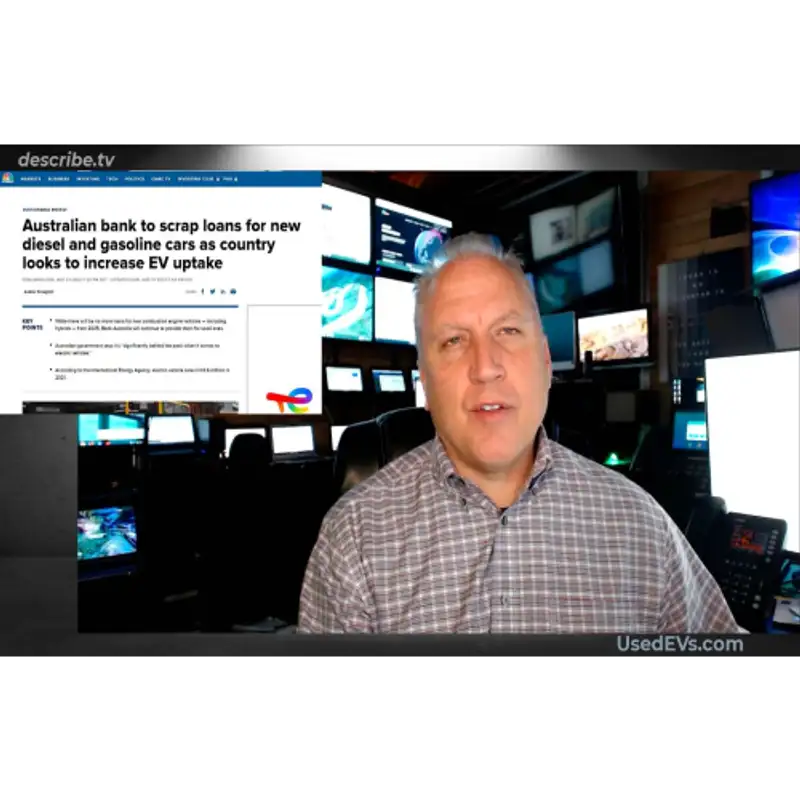Gasoline Vehicles Under Fire: California & Banks Driving the Ban
Download MP3Two important developments about the electric vehicle transition in the marketplace are starting to emerge. Policyholders are promulgating some new rules and incentives to accelerate the transition to electric vehicles. Here's an example from CNBC: some banks—this is starting in Australia, but U.S. banks are also considering this—will stop providing loans for new gasoline or diesel vehicles.
If you go to buy a car at a dealership and you are purchasing a vehicle that is not electric, you may not be able to secure a loan and would have to pay cash. Even if those cars are still available from manufacturers and dealerships, lending sources might not finance them. This policy is currently being implemented by one bank in Australia, but it is gaining traction as other banks and some manufacturers adopt similar measures. They are ceasing new loans for combustion engine vehicles but will continue offering loans for used vehicles.
The second development is happening in California, where the government is planning to ban gas-powered car sales. Unlike financing restrictions, this will make it outright illegal to sell new gasoline vehicles. According to the California Air Resources Board (CARB)—California’s version of the EPA—they are finalizing a plan to ban the sale of gasoline vehicles by 2035. Though this is over ten years away, it is expected to significantly accelerate the transition to electric vehicles nationwide.
Why is this significant? California is the largest vehicle market in the U.S., selling more vehicles than any other state. The ban will require all new cars sold in California to be free of fossil fuel emissions. This mandate will push manufacturers to stop making combustion engine vehicles, as it would no longer make financial sense to build cars they cannot sell in such a large portion of the market. Additionally, 12 other states are expected to adopt California’s ban, further pressuring manufacturers.
This raises many questions. What are your thoughts on these developments? Share them in the comments. Is this a good idea or a bad idea? Will it work, and how will it affect other areas? Are there unintended consequences? For example, are these requirements realistic, considering factors like inflation, charging infrastructure, and supply chains? Policymakers recognize the challenges, but what do you think?
Will people embrace electric vehicles enough to make these policies effective? Between banks not financing gasoline vehicles and states banning their sale, will this accelerate the transition, or will it lead to other alternatives? Could people move to other states or keep their gasoline vehicles longer? For example, if you buy a 2030 gasoline vehicle, you can keep it for 10 years—but will you face challenges finding parts and mechanics if manufacturers stop making new vehicles?
What are the unintended consequences of these policies? Are we overlooking anything? If you’re in the automotive or lending industry—or if you rely on gasoline-powered transportation—how do you think this will impact you? Share your thoughts and insights in the comments.

